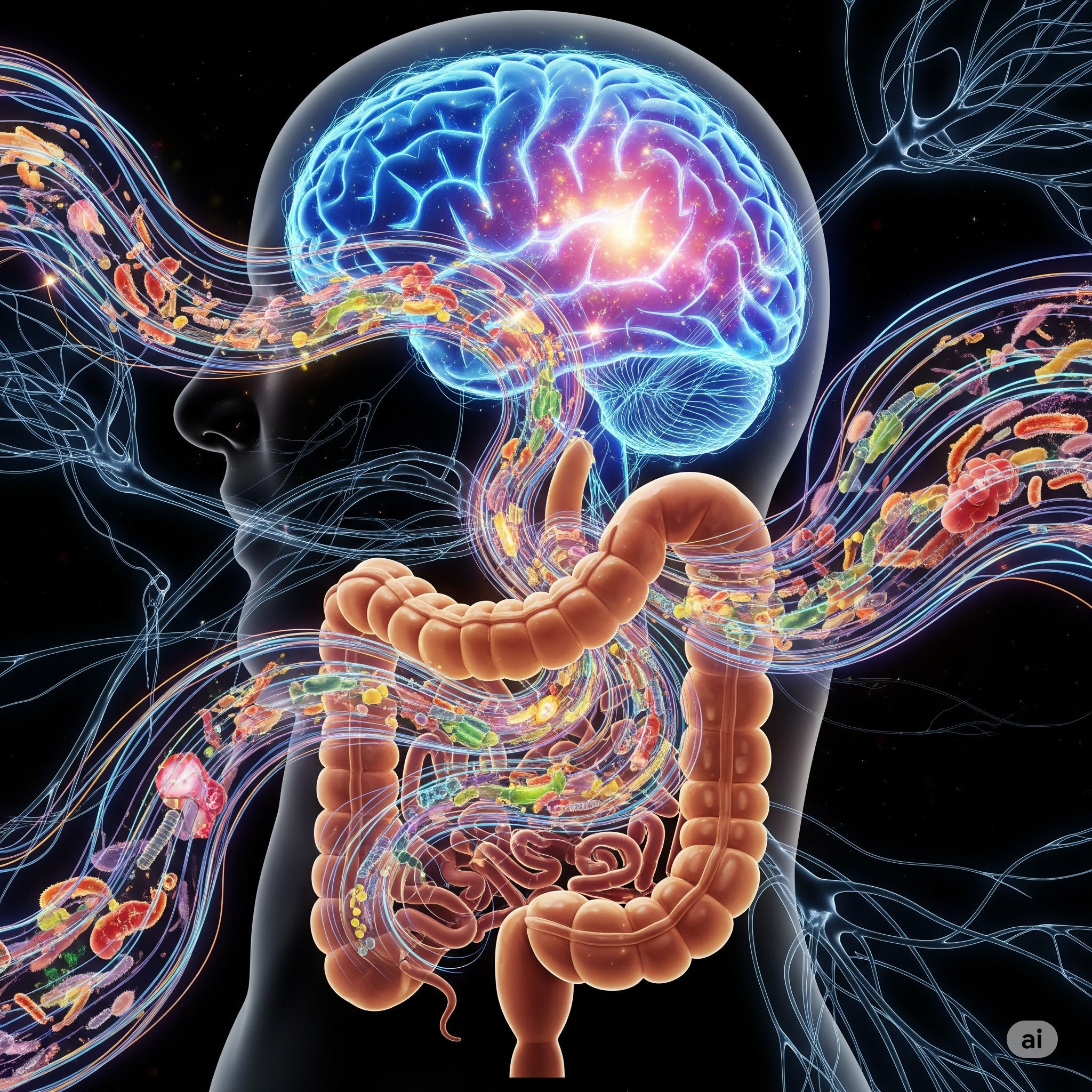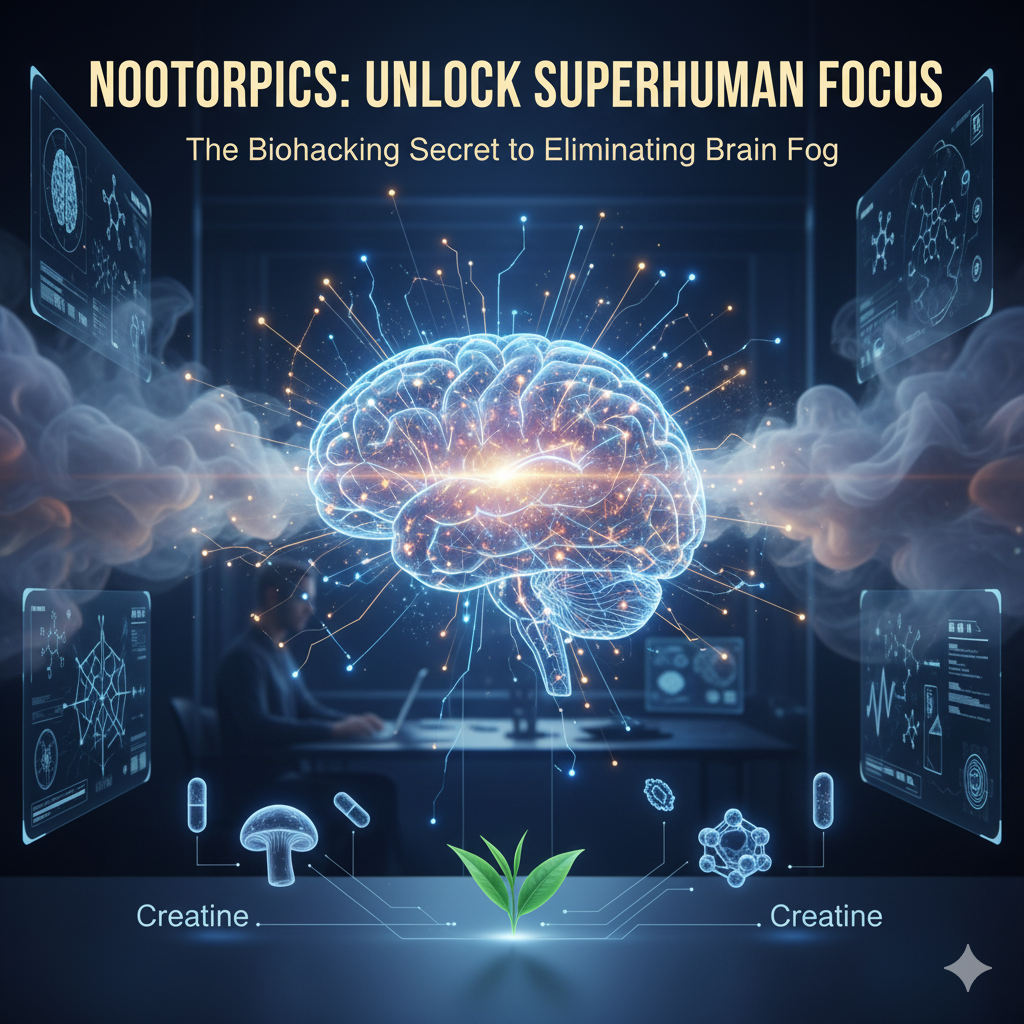Introduction: Unveiling the Intricate Connection Between Gut and Brain
The human body is an astonishingly complex network, where seemingly disparate systems often exert profound influences on one another. Among the most fascinating and rapidly evolving areas of scientific inquiry is the gut-brain axis (GBA), a bidirectional communication system that links the enteric nervous system (ENS) within the gastrointestinal tract to the central nervous system (CNS) in the brain. For centuries, the gut was primarily viewed as an organ solely responsible for digestion. However, groundbreaking research in the past two decades has revealed its crucial role in modulating our moods, cognitive functions, and even predisposition to various neurological and psychiatric conditions. This article delves into the multifaceted mechanisms underpinning the GBA, exploring its profound implications for mental health, neurological disorders, and the exciting potential for novel therapeutic strategies.
The Bidirectional Highway: Understanding the Gut-Brain Axis
The gut-brain axis is not a singular pathway but rather a sophisticated, multi-component communication system. Its primary components include:
- The Vagus Nerve: This cranial nerve acts as a superhighway, directly transmitting signals from the gut to the brain and vice versa. It plays a critical role in regulating digestion, heart rate, and mood.
- Neurotransmitters: The gut, often dubbed the “second brain,” produces a remarkable array of neurotransmitters, including over 90% of the body’s serotonin and a significant amount of dopamine. These chemicals, crucial for brain function, can directly or indirectly influence brain activity.
- Immune System: The gut houses a substantial portion of the body’s immune cells. When the gut barrier is compromised (leaky gut), inflammatory molecules can leak into the bloodstream and reach the brain, triggering neuroinflammation.
- Gut Microbiota: Perhaps the most significant recent discovery is the pivotal role of the gut microbiome – trillions of microorganisms residing in our intestines. These bacteria, viruses, fungi, and archaea produce metabolites, modulate immune responses, and synthesize neurotransmitter precursors, profoundly impacting brain health.
- Hormones: The gut produces various hormones that influence appetite, satiety, and stress responses, all of which have direct implications for brain function and mood regulation.
Understanding these interconnected pathways is fundamental to appreciating how gut dysbiosis (an imbalance in gut microbiota) can ripple through the entire system, impacting mental and neurological well-being.
The Gut Microbiome: Orchestrating Health and Disease
The gut microbiome is a dynamic ecosystem, constantly interacting with its human host. Its composition and diversity are influenced by diet, lifestyle, genetics, and medication use. A healthy, diverse microbiome is associated with numerous benefits, including robust immune function, efficient nutrient absorption, and protection against pathogens. Conversely, dysbiosis has been implicated in a spectrum of health issues, extending far beyond the digestive tract.
- Short-Chain Fatty Acids (SCFAs): Gut bacteria ferment dietary fibers to produce SCFAs like butyrate, propionate, and acetate. Butyrate, in particular, is a crucial energy source for colon cells and possesses anti-inflammatory properties, potentially influencing brain health.
- Neuroactive Metabolites: Microbes can produce a range of neuroactive compounds, including GABA, tryptophan, and even molecules that mimic neurotransmitters, directly influencing brain activity.
- Immune Modulation: The gut microbiome educates the immune system. Dysbiosis can lead to chronic low-grade inflammation, a known contributor to several brain disorders.
The profound influence of these microscopic inhabitants underscores the importance of nurturing a healthy gut environment for optimal brain function.
The Gut-Brain Axis and Mental Health: A New Perspective on Psychiatric Disorders
The link between the gut and mental health is becoming increasingly clear, challenging traditional views of psychiatric disorders as solely brain-centric.
- Depression and Anxiety: Numerous studies have shown altered gut microbiota profiles in individuals with depression and anxiety disorders. Dysbiosis can lead to increased inflammation and altered neurotransmitter metabolism, contributing to mood disturbances. Research indicates that certain probiotic strains can reduce anxiety-like behaviors in animal models and improve mood in humans.
- Stress Response: The GBA plays a significant role in mediating the body’s stress response. Chronic stress can negatively impact gut barrier integrity and alter microbial composition, creating a vicious cycle that exacerbates mental health issues.
- Autism Spectrum Disorder (ASD): Emerging research suggests a strong correlation between gut dysbiosis and ASD symptoms. Children with ASD often exhibit distinct microbial profiles and gastrointestinal issues. Modulating the gut microbiota is being explored as a potential adjunctive therapy.
- Schizophrenia: Although research is still in its early stages, some studies indicate microbial imbalances in individuals with schizophrenia, suggesting a possible role of the GBA in its pathogenesis.
These findings open up exciting avenues for novel diagnostic biomarkers and therapeutic interventions targeting the gut for mental health conditions.
Neurological Disorders: Unraveling the Gut’s Role in Brain Degeneration
Beyond mental health, the gut-brain axis is gaining recognition for its potential involvement in the development and progression of various neurological disorders, particularly neurodegenerative diseases.
- Parkinson’s Disease (PD): There is growing evidence that Parkinson’s disease may originate in the gut years before motor symptoms appear. Alpha-synuclein aggregates, a hallmark of PD, have been found in the enteric nervous system. Gut dysbiosis and inflammation are increasingly recognized as potential triggers or accelerators of the disease.
- Alzheimer’s Disease (AD): The gut microbiome’s role in Alzheimer’s disease is an active area of research. Dysbiosis can contribute to neuroinflammation and the accumulation of amyloid plaques, key features of AD. Specific bacterial metabolites may influence brain pathology.
- Multiple Sclerosis (MS): MS, an autoimmune disorder affecting the central nervous system, has also been linked to gut dysbiosis. The gut microbiome can modulate immune responses, and an imbalanced microbiota might contribute to the autoimmune attacks seen in MS.
- Stroke and Traumatic Brain Injury (TBI): Recent studies suggest that acute neurological events like stroke and TBI can significantly alter the gut microbiome. These alterations, in turn, can influence post-injury inflammation and recovery outcomes, highlighting the GBA’s broader influence on brain injury and repair.
Understanding these complex interactions offers hope for developing new preventive and therapeutic strategies for these devastating conditions.
Modulating the Gut-Brain Axis: Therapeutic Strategies and Future Directions
Given the profound impact of the gut-brain axis on health, therapeutic strategies aimed at modulating this intricate connection are gaining significant traction.
- Dietary Interventions: Diet is the most powerful tool for shaping the gut microbiome. A diet rich in fiber (fruits, vegetables, whole grains), prebiotics (e.g., inulin, FOS), and fermented foods (kefir, sauerkraut, kimchi) can promote microbial diversity and beneficial metabolite production. Limiting processed foods, sugar, and unhealthy fats is also crucial.
- Probiotics and Prebiotics:
- Probiotics: Live microorganisms, when administered in adequate amounts, confer a health benefit on the host. Specific probiotic strains, often referred to as “psychobiotics,” are being investigated for their potential to improve mood and reduce anxiety.
- Prebiotics: Non-digestible food ingredients that selectively stimulate the growth and/or activity of beneficial microorganisms in the gut. They essentially “feed” the good bacteria.
- Fecal Microbiota Transplantation (FMT): For severe cases of dysbiosis, such as recurrent Clostridioides difficileinfection, FMT has proven highly effective. Its application in neurological and psychiatric conditions is still experimental but shows promise in early research.
- Lifestyle Factors: Regular exercise, adequate sleep, and stress reduction techniques (e.g., meditation, yoga) all contribute to a healthy gut microbiome and overall GBA function.
- Targeted Therapies: Future directions include developing highly specific interventions, such as genetically engineered probiotics, microbial-derived metabolites, or pharmaceutical agents that specifically target GBA pathways.
The field is rapidly advancing, with ongoing clinical trials exploring the efficacy of these interventions for a range of mental and neurological conditions.
Challenges and Future Research
Despite the exciting progress, significant challenges remain in fully unraveling the complexities of the gut-brain axis.
- Causality vs. Correlation: Distinguishing whether gut dysbiosis is a cause or a consequence of certain disorders remains a key challenge. Longitudinal studies are needed to establish clearer causal links.
- Individual Variability: The human microbiome is highly individual, making it challenging to predict universal responses to interventions. Personalized medicine approaches will be crucial.
- Mechanism Elucidation: While many associations have been identified, the precise molecular and cellular mechanisms through which the gut influences the brain need further elucidation.
- Standardization of Interventions: Developing standardized probiotic strains, dosages, and dietary recommendations requires rigorous clinical trials.
Future research will likely focus on large-scale human studies, advanced multi-omics technologies (genomics, metabolomics, proteomics) to characterize the GBA, and the development of targeted, personalized therapeutic strategies.
Conclusion: The Dawn of a New Era in Brain Health
The concept of the gut-brain axis has revolutionized our understanding of health and disease, bridging the gap between seemingly distinct bodily systems. From influencing our daily moods to potentially contributing to the pathogenesis of severe neurological conditions, the gut’s profound impact on the brain is undeniable. As scientific exploration continues, the intricate dance between our microbial inhabitants and our minds will undoubtedly unlock novel avenues for preventing, diagnosing, and treating a wide array of mental and neurological disorders. Nurturing a healthy gut through mindful dietary choices and lifestyle practices is not just about digestive well-being; it is a critical investment in the future of our brain health and overall vitality. The future of medicine lies, in part, in understanding and harnessing the power of this remarkable connection.



One thought on “The Gut-Brain Axis: A Novel Frontier in Mental Health and Neurological Disorders”